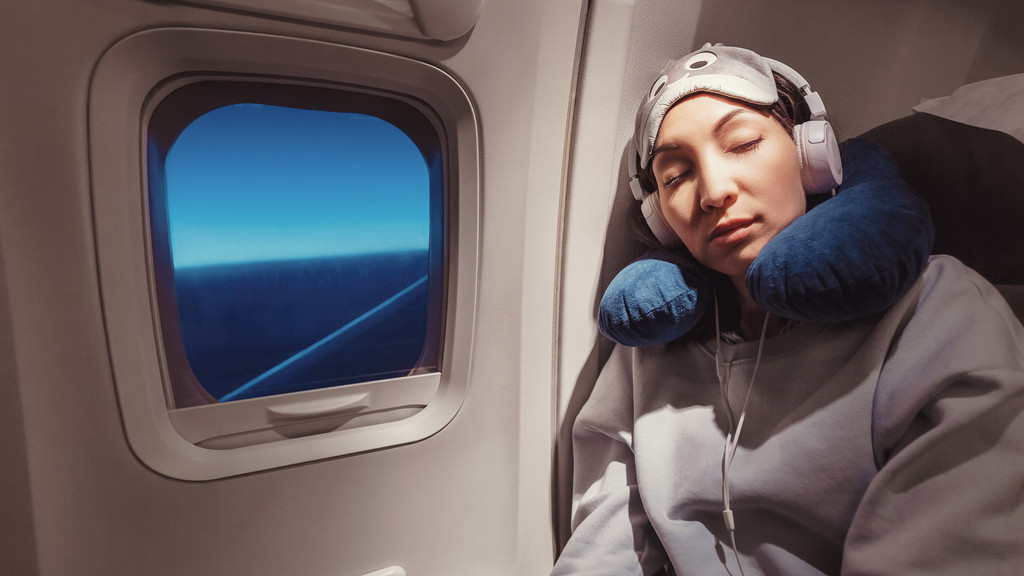
FOUR WAYS TO BEAT JET LAG
If you have any holidays coming up this summer, you might want to think about how you can prevent jet lag.
Jet lag is a common problem that many people experience when travelling across time zones. It can leave you feeling out of sorts and tired due to the abrupt change in your body clock.
Marianna Kilburn, a health advisor and qualified life coach at avogel.co.uk, has shared her tips for preventing jet lag.
Get plenty of rest before your trip
In the lead up to your trip, try to get lots of rest.
"It's not exactly a secret but flying can be very stressful - you have to worry about boarding passes, checking in, getting through security and considering possible delays," Marianna says. "These anxieties can then be exaggerated, especially if you are travelling with small children or harbour a fear of flying!"
Marianna notes that these feelings can make you feel tired before you even arrive at your destination.
She continues, "Make sure you get a good night of rest before your flight - even if you do get a few symptoms, you will at least feel more equipped to handle them than you would have done already starting a step behind!"
Avoid alcohol and caffeine
Drinking alcohol and coffee can make you feel sleepy after a few hours, so try to drink something hydrating instead.
"Not only is alcohol loaded with inflammatory chemicals, it can also dehydrate you and trust me, the last thing you want is to be dehydrated on a long-haul flight," the expert explains. "Similar to alcohol, a lot of people seem to think the best way to beat lethargy is to counteract it with a cup of coffee or a fizzy energy drink. Caffeine however, will inhibit your ability to sleep and throw your body off-balance. It may also increase your vulnerability to dehydration."
Adjust your circadian rhythm
In the days before you travel, try to synchronise your body with the time zone of your holiday destination.
"If you are going on a long-haul flight, it might be an idea to try syncing your body clock to your destined time zone a few days before you travel," Marianna recommends. "Of course, this isn't an option for everyone, especially if you're working or have children, however, if you do have the time I would try to make small steps towards doing this."
Spend time outside
Once you have arrived at your destination, spending time outdoors can help to "stimulate" your circadian rhythm.
"Believe it or not, depending on when you arrive, it might be an idea to spend some time outside," Marianna says. "If you arrive early in the morning and want to stay awake to force your body to adjust, soaking up some vitamin D outdoors should help to stimulate your circadian rhythm."
She adds, "It's also been proven that sunlight can help to release mood-boosting hormones such as serotonin. So instead of barricading yourself in a hotel room, take a walk and explore your new surroundings."
2024-07-11T11:37:33Z dg43tfdfdgfd